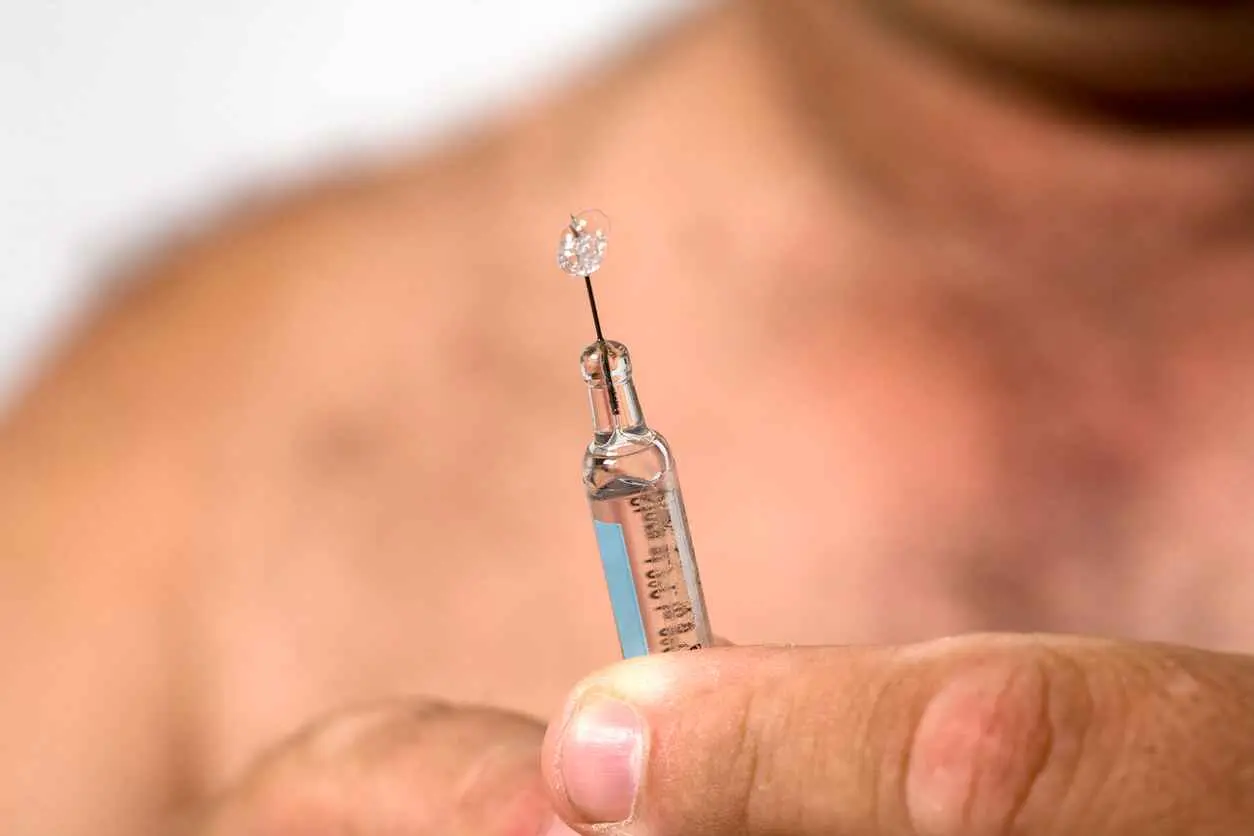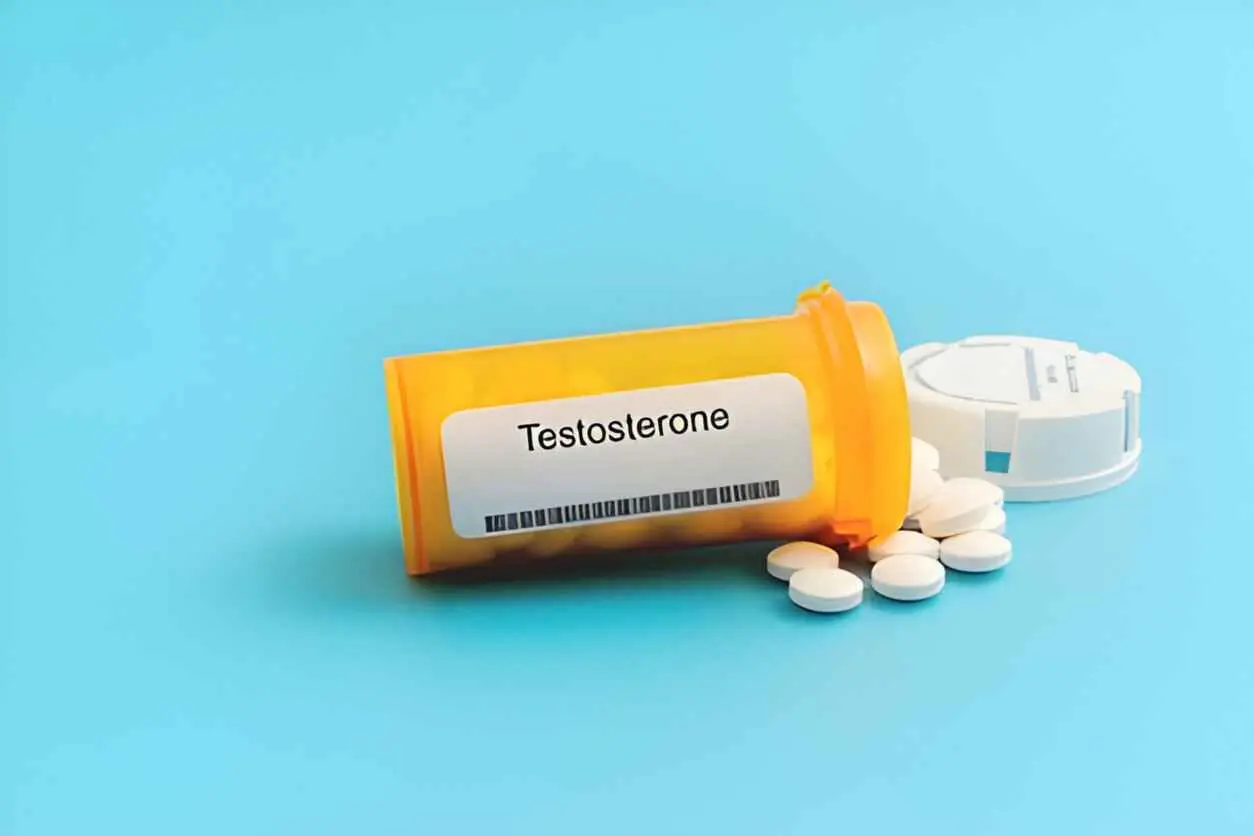
Testosterone Replacement Therapy And Heart Attacks
Testosterone Replacement Therapy And Heart Attacks
Does TRT Increase Heart Attack Risk?
Research on testosterone replacement therapy (TRT) and heart attacks shows mixed results. Some studies suggest a higher risk in the first two years, while others show long-term cardiovascular benefits when TRT is monitored and dosed correctly.
Testosterone Replacement Therapy, or TRT, is becoming more common, especially among men who feel tired, have low energy, or are getting older. It is often used to treat a condition called hypogonadism. This means the body does not make enough testosterone, a hormone that helps with things like muscles, mood, and sex drive.
Even though many people say TRT helps them feel better, some doctors and scientists worry that it might not be safe for everyone. One of the biggest concerns is whether TRT could increase the chance of having a heart attack.
In this blog, we will look at what the science says. Is TRT risky for the heart? Or is it safe for most people? We will examine how TRT works, review the latest studies, and discuss who should exercise caution. We will also discuss who might benefit from it and what to watch out for if you are considering using it.
By the end, you will have a clear understanding of the pros and cons of TRT and be better equipped to make informed choices with your doctor.
Medical Research on TRT and Cardiovascular Safety
What's The Link Between TRT And Increased Heart Attack Risk And Strokes?
The subject of 'testosterone' is often surrounded by negative connotations and societal judgments.
The common perception of bodybuilders is often linked to those who misuse steroids, resulting in an exaggerated and unhealthy appearance. These individuals may appear to be on the verge of a cardiovascular event, with bulging veins and excessive muscle mass.
Despite occasional news reports of bodybuilders abusing steroids and experiencing heart issues, there is a common misconception that testosterone replacement therapy (TRT) poses the same risks. However, when administered under the supervision of knowledgeable doctors, TRT can be a safe and effective treatment option for people with low testosterone levels.
Like many other aspects of medicine, the truth can be intricate and nuanced.
This article will analyse the research on factors that contribute to the risk of heart attacks and strokes while also exploring the potential benefits of a properly implemented TRT program in mitigating these risks.
TRT And Heart Attacks/Strokes: What Research Recommends?
Medical research is crucial in expanding our knowledge of new treatments, their safety, and the associated risks. This knowledge enables us to make informed decisions about the best treatment for our health.
Regrettably, research is occasionally conducted with inadequate methodology or flawed study designs, resulting in inaccurate conclusions. Therefore, it is crucial to thoroughly analyse and comprehend all facets of the research to draw reliable and valid conclusions.
Insufficiently conducted studies, or studies that fail to present a comprehensive perspective, can potentially mislead and unjustly demonise entire fields of medicine or specific treatments.
It is crucial to thoroughly comprehend the focus and methodology of any study, including those on TRT. In many TRT studies, there is a need for a more thorough examination of vital blood markers or the utilisation of outdated treatment protocols, making it necessary to evaluate the reliability and relevance of the findings.
Mixed Research
Some studies have suggested a potential link between testosterone replacement therapy (TRT) and an elevated risk of cardiovascular events, such as heart attacks and strokes, in specific individuals.
According to a study conducted in 2019, men aged 45 and above who began testosterone replacement therapy (TRT) experienced a 2% higher risk of heart attacks, strokes, and other clotting issues for two years. However, after this time frame, their risk returned to normal.
The research findings indicate that individuals who utilised [TRT] experienced a higher likelihood of stroke, TIAs [mini-strokes], or cardiac arrest within the initial two years of implementation.
Increased testosterone levels can result in a higher production of red blood cells, leading to an elevated haematocrit level. Consequently, the blood becomes more viscous, increasing the risk of clot formation.
Regular blood donation is highly recommended for men undergoing testosterone replacement therapy (TRT) to prevent the potential risks associated with increased blood hematocrit levels. By donating blood, men can reduce their risk of developing clots and ensure their treatment remains safe and effective.
Although there is a well-established understanding of the potential dangers associated with unregulated testosterone use, recent evidence suggests that maintaining consistently low levels of testosterone may also pose certain health risks.
Recent studies have shown that individuals with low levels of testosterone may have a higher likelihood of experiencing cardiovascular complications such as heart attacks, strokes, and other related events.
New Research Suggests Testosterone Replacement Therapy And Heart Attacks/Strokes Are Not Linked.
The increasing research on this topic highlights its multifaceted nature, encompassing various variables and elements contributing to its complexity.
Contrary to a 2014 study suggesting a link between testosterone therapy and increased risk of heart attack in older men, more recent research has found no evidence of a higher incidence of cardiovascular disease among men undergoing testosterone treatment.
In fact, according to a study conducted by Muraleedharan et al. (2013), men who underwent testosterone therapy had a decreased mortality risk compared to those who did not receive the treatment.
In a study conducted by Sharma et al. (2013), it was observed that men with low testosterone who underwent TRT to restore their testosterone levels experienced a notable decrease in the occurrence of heart problems, such as heart attacks and strokes.
In a study published in the JAMA journal in 2017, researchers examined a group of over 44,000 men with androgen deficiency. The findings revealed that men who incorporated TRT into their treatment had a 33% reduced risk of heart problems compared to those who did not.
However, these findings contradict the results of previous studies on the same topic, highlighting the need for further research to understand the discrepancies in the data.
Contrary to previous beliefs, a recent study revealed no evidence of a connection between TRT and an elevated risk of myocardial infarction or heart attack.
On the contrary, men who were at a higher risk for heart problems and underwent TRT experienced a decreased incidence of heart attacks compared to their counterparts who did not undergo this treatment.
The outcomes vary depending on the research and are likely influenced by the level of monitoring for the men and the control of risk factors like elevated haematocrit levels.
Why TRT Heart Risk Studies Show Conflicting Results
Some studies say TRT is safe for the heart. Others say it might be risky. So, why don’t they all agree? Let’s look at the reasons.
Different Kinds of Studies
There are two main kinds of studies:
- Clinical trials: These are careful tests. People are picked at random to get either TRT or a fake treatment (called a placebo). These studies are very fair. Most of these show that TRT does not cause more heart attacks in the short term.
- Observational studies: These look at people who are already taking TRT and compare them to people who are not. These studies are helpful, but not perfect. People in them may already be sick, which can affect the results.
Who Paid for the Study?
Some studies were paid for by drug companies that make testosterone. These studies often say TRT is safe. Other studies not funded by these companies sometimes reveal higher heart risks. This does not mean the drug company studies are wrong, but it’s good to know who paid for the research.
You can read more about this here.
Different Types of People in the Studies
Some studies look at healthy young men. Others look at older men who already have heart problems. This makes a big difference.
For example:
- TRT may be safer for younger, healthy men
- TRT might be riskier for older men or those with heart disease
Also, some people take TRT for just a few weeks, while others take it for years. This can also change the results.
So, not all studies are the same. That’s why they sometimes say different things. It depends on the type of study, the participants, and who funded it.
TRT Heart Risks: What Men Should Consider Before Starting
So, what should men think about before starting TRT? Some men might be fine taking it, but others may have a higher risk of heart problems. Here’s what you need to know.
TRT Can Be Risky for Some Men
TRT might not be safe for everyone. It could be risky for:
- Older men
- Men who already have heart problems
- Men who have had blood clots
- Men who smoke or have high blood pressure
Some studies showed that these men had a higher chance of having a heart attack soon after starting TRT. That’s why doctors are conscientious before giving TRT to them.
You can read about one of these studies here.
How Doctors Help Keep It Safe
Doctors don’t just give TRT to anyone. First, they do tests to check your:
- Testosterone levels
- Heart health
- Blood pressure
- Blood thickness
If the tests look okay, they may prescribe TRT, but they still need to monitor you closely. You may need to undergo blood tests every few months to ensure your body is responding well to the treatment.
TRT Is Not for Everyone
Some men want TRT to get stronger or feel younger, even if they don’t need it. But TRT is not a magic pill. It is only for men who have low testosterone and symptoms like feeling tired or having a low mood.
If your testosterone is normal, TRT could do more harm than good.
How Does Testosterone Replacement Therapy (TRT) Affect These Risks?
Several theories and explanations attempt to shed light on the reasons behind the cardiovascular health improvements observed in certain men undergoing testosterone replacement therapy (TRT).
In certain instances, men who have low testosterone levels may have an increased susceptibility to these conditions. This is especially true for individuals who develop diabetes or obesity as a secondary consequence of their low testosterone levels.
Men with low naturally produced testosterone levels have been found to have an increased risk of mortality from all causes, particularly cardiovascular-related deaths.
Men with obesity, type 2 diabetes, and existing coronary artery disease typically exhibit decreased levels of endogenous testosterone compared to men without these conditions.
Testosterone replacement therapy has been proven to enhance exercise capacity without causing any detrimental effects on left ventricular ejection fraction, which is associated with cardiac complications resulting from the enlargement of the left side of the heart.
In addition, research has demonstrated its positive effects on insulin resistance and haemoglobin A1c levels in individuals with diabetes, as well as its ability to decrease the body mass index (BMI) of obese individuals.
Besides enhancing muscle strength, sexual function, and mood, TRT offers many beneficial effects on male health.
Latest Studies on Testosterone Therapy and Heart Disease
According to a recent study conducted by Loo et al. (2019), it was discovered that men between the ages of 45 and 69 who underwent treatment experienced a 21% higher likelihood of cardiovascular events within the initial two years. In addition, the study revealed that men who received testosterone replacement therapy (TRT) had a significantly decreased risk of mortality from any cause throughout the research.
Furthermore, the review concluded that TRT was associated with a slight decrease in all-cause mortality. The authors recommended that more research be conducted to determine the exact role of TRT in cardiovascular disease.
While there may be an increased risk of heart issues within the first two years of using TRT, the study found that overall mortality rates were lower over the 22 years.
Balancing the Good and the Bad
TRT can help some men feel better, but it also has some risks. So how do you know if it’s worth it? Let’s look at the good side and the bad side, and how to make the right choice.
The Good Side of TRT
When a man has very low testosterone, TRT might:
- Boost his energy
- Improve his mood
- Increase his interest in sex
- Help build muscle and keep bones strong
- Help him feel more like himself again
Some studies even show that men with low testosterone who get TRT may live longer than those who do not get treatment.
You can read more here.
The Risky Side of TRT
But TRT also has downsides. It might:
- Raise the risk of blood clots
- Cause high blood pressure
- Make the heart beat unevenly
- It is risky for older men or men with heart disease
- Lower the body’s ability to make testosterone
Due to these risks, TRT should only be used when necessary, not merely to appear younger or gain muscle mass.
You can learn more about the dangers here.
Making the Right Choice
Every man is different. What works for one person might not be right for another. That’s why doctors say we need to weigh the pros and cons, which means considering both the benefits and drawbacks before making a decision.
Doctors call this shared decision-making. This means you and your doctor talk openly, ask questions, and decide together what’s best for you.
Summary of Research on TRT and Heart Risk
|
Study / Year |
Main Finding |
Risk Timeline |
Notes |
|---|---|---|---|
|
Muraleedharan 2013 |
TRT reduced mortality |
Long-term |
Men with low T had better survival rates |
|
Sharma 2013 |
TRT reduced heart events |
Long-term |
Decreased heart attack & stroke risk |
|
JAMA 2017 |
33% lower heart problems on TRT |
Long-term |
Over 44,000 men studied |
|
Loo 2019 |
21% higher events in first 2 years, lower overall mortality |
Short & long-term |
Risk higher early, benefits later |
Frequently Asked Questions About TRT and Heart Attack Risk
-
Does testosterone therapy cause heart attacks?
Most studies show no long-term increase in heart attack risk when TRT is appropriately prescribed, though some suggest a slight early risk in the first two years.
-
Is TRT safe for men with heart disease?
TRT safety for men with heart disease depends on individual health. It should only be started after a thorough cardiovascular check-up and ongoing monitoring.
-
Can TRT improve heart health?
Yes, TRT may improve heart health in men with low testosterone by lowering body fat, improving insulin resistance, and supporting vascular health.
-
What’s the safest way to start TRT?
Begin with a comprehensive health assessment, start at a medically recommended dose, and have blood tests every 3–6 months to monitor testosterone, haematocrit, and heart markers.
-
Do testosterone injections carry more heart risk than gels?
Injections may cause greater fluctuations in hormone levels, which could increase heart risk if doses aren’t well-managed. Gels provide steadier absorption.
-
Can TRT lower mortality rates?
Some research suggests men with low testosterone who take TRT may live longer, particularly if they maintain stable hormone levels over time.
Conclusion
Recent studies show that testosterone replacement therapy (TRT) may raise the risk of heart attacks and strokes, especially in men who take too much or are new to the treatment. But the risk decreases significantly after the first two years. Men who stay on TRT for longer often have fewer heart problems and may even live longer.
TRT has also been linked to better energy, mood, muscle strength, and overall well-being. It can be a helpful treatment for men with low testosterone, as long as it is used safely and under the care of a doctor.
Before starting TRT, it’s imperative to understand both the benefits and the risks. You should always talk with a specialist who can guide you and help you make the best choice for your health.
Androgenix is here to help. Their team of experts can support you through every step of your TRT journey, from testing and diagnosis to safe treatment and regular check-ups. With the proper care and advice, you can enjoy a better quality of life while staying safe and healthy.


